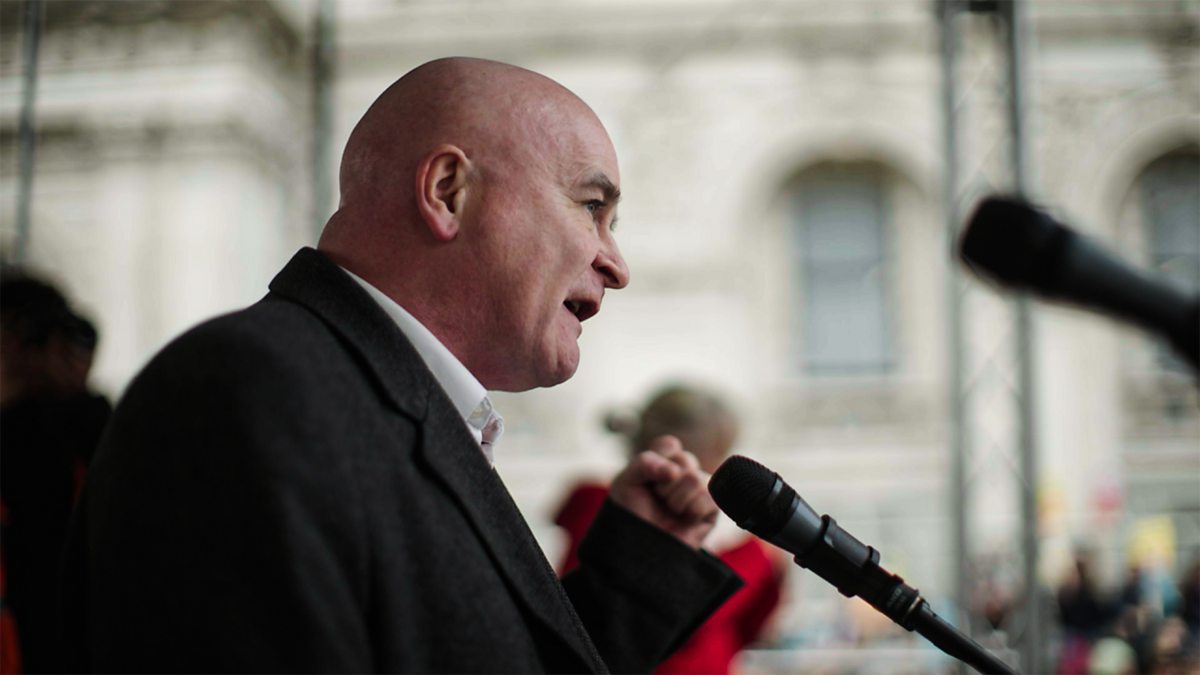Cowper's Cut 272: "Ever get the feeling you've been cheated?"

This has ended up being an extra 'Cowper's Cut', given that I did a special last Monday on the Labour leader Sir Keir Starmer's NHS speech, which is here if you missed it.
Deep breath: it's been another ridiculous week.
Iron while the strike's hot
We have been clearly told by DHSC that doctors wages are being suppressed and withheld by @RishiSunak himself.
— Robert Laurenson (@RobLaurensonD4P) May 22, 2023
The Prime Minister now needs to explain to tens of thousands of doctors why he values us less than a doctor was worth in 2008. https://t.co/npjPMdZP3y
Judging by his revealed preference, it seems that PM Rishi 'The Brand' Sunak is actually quite fond of NHS backlogs. He has promised to reduce them by an unspecified amount by an unspecified date, but continues to fail to come to a pay settlement with key parts of the NHS workforce which can and will make these backlogs grow.
BMA junior doctors committee co-lead Rob Laurenson's Tweet about this is incendiary. He asserts that "we have been clearly told by DHSC that doctors wages are being suppressed and withheld by Rishi Sunak himself".
Laurenson is pointing the finger in the most unambiguous way at the political leadership of the Department For Health But Social Care. He might, of course, be bluffing here - but if so, he knows that the same social media space that he's using to do this is available to the person whom he is dropping in the brown, sticky, malodorous stuff.
Over to Health But Social Care Secretary Steve 'The Banker' Barclay (or team), who responded in kind, anonymously telling The Times' Eleanor Hayward that the BMA JDC leaders “have collapsed talks by calling strikes. The BMA never shifted from their 35 per cent demand, and in fact upped their proposal to 49 per cent. That is not how negotiations work. It is completely unaffordable and unrealistic”.
The BMA-Banker hostilities were resumed live on Sunday's Laura Kuennsberg Show. The exchange of views left viewers no wiser, nor any better-informed.
And SAS doctors?
#SASConf votes overwhelmingly in support of @TheBMA balloting SAS doctors in England on whether to take industrial action over pay restoration.
— Tim Tonkin (@BMAtim) May 23, 2023
More to follow.
Yep, there's an overwhelming vote to hold a strike ballot over pay there, too.
The situation in Scotland provides a vivid contrast: junior doctors there will vote on an offer of 14.5% staged over two years. BMA Scotland are just presenting this proposed deal, rather than advocating it to their members.

It's about political attitudes, beliefs and choices. RCN general secretary Pat Cullen told a revealing anecdote about these in the BBC documentary 'Strike: Inside The Unions', revealing that a health minister had told her that they were surprised nurses needed to live off their salaries: "ministers coming into the room saying to me that they're shocked that nursing staff may be the main breadwinner in the family. Because they believe that it's a second salary that we don't depend on. They are totally out of touch".
Aren't they just. This is almost a callback to the beautiful moment when The People's Partridge told the 2019 Chief Nurses Summit "nurses were expected to stand up when a doctor entered the room ... I find that's still the case in some antiquated, archaic corners of the NHS". (As with so many things that Alan asserted, this was unmitigated bullshit.)
It feels as if the Conservative And Unionist Party's health policy, and indeed team, is struggling to find its way into the early 1980s.
A Department For Health But Social Care spokesperson said they 'did not recognise' Cullen's claim (this is Not A Denial), and had "utmost respect" for all staff. Mmmmmmmmmmmmmmmm.
The opening credits of this programme report that “the government departments ... featured in this series declined to take part”. This is telling, as is Cullen's information: it all sits squarely with everything I've observed and heard about The Banker's and the Government's 'parent-child' approach to these pay negotiations.
There will be a lot more strikes ahead.
The politics
1/ First let's deal with the fundamentals.
— Keiran Pedley (@keiranpedley) May 23, 2023
Satisfaction with govt
Satisfied 15% (-1 from March)
Dissatisfied 76% (-1)
Net: -61
Cons deserve to be re-elected
Agree 23% (+4 from Dec)
Disagree 56% (-5)
Net: -43
Upshot: govt is (very) unpopular!
Reliable pollsters Ipsos' Political Monitor for May 2023 finds that "63% of Britons expect Labour to be the biggest party after the next General Election ... 43% expect a hung parliament with Labour as the largest party and 20% think Labour will win a majority.
"25% expect a Conservative victory (8% expect a Conservative majority and 17% a hung parliament with the Conservatives as the largest party).
"In September 2019, 23% expected a Labour victory at the coming election, and 58% a Conservative one (12% expected a Conservative majority; 46% expected a hung parliament with the Tories as the largest party)".
Europe wide survey - while cost of living is number one most places, in the UK it is the future of #publicservices #ipsos pic.twitter.com/hRre7Ol32M
— Ben Page (@benatipsos) May 24, 2023
Ipsos' global chief executive Ben Page highlighted another Europe-wise survey which found that "while cost of living is number one most places, in the UK it is the future of public services".
Workforce

The Health Foundation's latest GP workforce tracker data shows that the increasing trend in appointments in general practice continues, with 29 million appointments in January 2023. (This compares with 25.4 million in January 2022, and 24.7 million before the pandemic in January 2020.)
It alsos shows that while the total number of GPs has increased since 2015, there are fewer qualified and permanent full-time equivalent GPs: "the total number of fully qualified and permanent GPs by headcount has only increased slightly from 34,828 to 35,198. Due to a reduction in working hours by GPs over time, the number of full-time equivalent fully qualified permanent GPs has in fact decreased from 28,590 in 2015 to 26,631 in 2023 – a fall of 1,959.
"The number of full-time equivalent, fully qualified permanent GPs is the best measure of GP workforce capacity".

Sky News have this excellent analysis on primary care pressures in the most deprived areas.
Meanwhile, HSJ reports that the recent Agenda For Change staff pay deal may be two-tier: "staff working in social enterprises, charities, outsourced services and wholly owned subsidiaries – many of whom work under AfC terms and conditions or have their pay index-linked to the contract – are at risk of not getting part of the uplift.
"Some primary care staff may also be affected ... funding for extra non-consolidated payments for 2022-23, which were part of the deal, would only be covered for staff directly employed by NHS organisations. The one-off payments are worth an average of £2,000".
Bound to go down well, that.
Partha Kar's latest column for the BMJ is a good read on workforce issues, pointing out that "compared with its neighbours, the UK has the highest proportion of doctors it has trained who now work abroad, and more overseas staff are leaving the UK than coming here and staying".
What could conceivably go wrong?

It's not as if loads of them could retire early ... oh.
HSJ's Nick Kituno spotted that this is indeed happening, with this fine FOI story. "The number of NHS staff claiming retirement benefits has reached its highest level in nearly a decade ... data obtained from the NHS Business Service Authority showed NHS staff made an average of 3,864 claims per month to access their pensions in the 12 months to November 2022.
"This is the highest the 12-month rolling average has been since March 2015, which is the date HSJ’s freedom of information request went back to. It had fallen back slightly to 3,716 by February 2023".
The Nursing and Midwifery Council's latest Annual Data Report found that "26,755 people who left the register, down slightly from the previous year – but our research indicates that more than half of those who left the register did so earlier than planned".
And Nuffield Trust's Lucina Rolewicz has this interesting blog looking at UK workforce issues in comparison with other countries' experiences.
Meanwhile, the latest "Shortage Occupations" list of those prioritised for immigration features healthcare managers and directors. It's a mystery, right?
Shaun Lintern and colleagues at the Sunday Times revealed that the proposed launch of the NHS workforce plan on Tuesday has been put off by Number 10/Treasury wrangling trying to get the NHS to reduce the predictions of the trainee numbers who will be needed.
One must have a heart of stone not to laugh. They also cite new RCEM analysis, which reveals that some A&E departments are spending 80% of their wage bills on locum doctors to fill staffing gaps. That sounds sustainable.
40 New (If Fictional) Hospitals update: "Ever get the feeling you've been cheated?" edition
Look, I know it's not new news to any of you. But - sigh - the Government's been at their Forty New (If Fictional) Hospitals hopium stash again.
Do you think it's time for us to stage an intervention?
Or do we think that their actual aim is to manifest the 40 New (If Fictional) Hospitals into existence? Say their names an intedeterminate number of times, and (like Candyman, or Beetlejuice) they'll just magically appear?
I'm distressed to report that The Banker made a Commons statement on the subject. The need to include the Aero-RAAC-roofed cohort -
"taken together with the two RAAC hospitals already in the Programme the seven RAAC hospitals will be completely rebuilt using a standardised design known as Hospital 2.0 the aim of completing all seven by 2030 and I can confirm to the House today that these new hospital builds will be fully funded"
- means that eight for the original (if fictional) forty new hospitals will be displaced beyond 2030, as HSJ's Zoe Tidman reported.
So it's comisserations to St Mary’s/Charing Cross/Hammersmith Hospitals (Imperial); Queen’s Medical Centre (QMC)/Nottingham City Hospital; Royal Preston Hospital; Royal Lancaster Infirmary/Furness General; East Sussex Hospitals; Hampshire Hospitals; Royal Berkshire; and North Devon District Hospital - and of course, to their communities and staff.
Mr Barclay referred to the shunted eight as moving into "the rolling new hospital programme", and they sure have been rolled.
Kudos to Imperial's leadership for their 'taking no shit' response to being rolled, though: as HSJ's Nick Kituno notes, "the trust accounts for a huge proportion of the NHS’s total high-risk maintenance backlog, amounting to several hundred millions of pounds".
It's worth reading the associated Hansard of the debate, to witness the plaintive pleas from backbench Conservative And Unionist Party MPs to The Banker to deliver their fictional new hospital for their constituents. Even ex-PM Liz Of The 49 Days gets in on this act. One must have a heart of stone not to laugh at their plight. It's almost as funny as this blog from DHBSC.
Labour's shadow health secretary Wes Streeting had a decent line in his reply: "since that general election, we have had more new Health Secretaries than we have had new hospitals". Streeting also got the 'fictional' memo, noting that "the only place that these 40 “new” hospitals will exist by 2030 is in the former Prime Minister’s imagination".
We might laugh one or two fewer hollow laughs about this poorly-plotted farce if the New (If Fictional) Hospital Programme team had yet started the process of appointing its delivery partner. Lib Dem health lead Daisy Cooper told the Commons that "Building magazine says that the contract notice for a delivery partner will not even be published until September".
'Cut' readers have long known that there will not be 40 new hospitals by 2030. I wrote about this in the British Medical Journal in 2019, and may perhaps have mentioned it from time to time since then.
The Banker's repeated claims to the contrary are an obvious untruth. To keep trying this nonsense on begs the question of whether the Secretary Of State is a fool, a knave, or both.
The closing line of Mr Barclay's Commons statement - "today we confirm the funding to build 40 hospitals by 2030" - is also an explicit untruth. The proposed £20 billion budget is far below what is needed, and inflation continues to roar, driving up gilt yields and thus Government borrowing costs. You are probably more familiar than most with the ugly fact of the NHS £10 billion backlog maintenance that needs doing, most of it urgently.

It was intriguing to see this also becoming a theme in The Banker's appearance on the Laura Kuenssberg Show, during which Mr Barclay both reiterated that he had told the Commons about 40 new hspoitals, and also admitted that almost all were not new hospitals.
Ahem.
Patient choice (yep, that thing which you already have)
Patient choice! It's so new!
Ahem.
What we know about the New Labour iteration of patient choice is that very few people chose choice (and yeah, fine: London's different).
The Banker told the Commons that the NHS App will miraculously fix waiting times. Well, almost: "when GPs make a referral, they will make a shortlist of the five most suitable providers, and patients will be able to choose from the shortlist on the app ...
"From October this year, patients who have waited more than 40 weeks for an appointment, or who have a decision to treat but do not have a treatment date, will be able to request a transfer to another provider with a shorter waiting list. It is our ambition to expand that offer to other groups of long waiters, progressively lowering the waiting time towards 18 weeks as fast as is clinically possible".
Wes Streeting's reply got to the nub of the matter: "it does not matter which hospital patients choose; they can only receive care on time if there are enough staff to treat them—so why are we still waiting for the NHS workforce plan that the system is crying out for?
"Why do we have net migration at the highest level ever, with the Government over-reliant on recruiting staff from overseas because they cannot be bothered to train home-grown talent? Where is the plan to train the doctors and nurses whom the NHS is so desperately short of?"
Helen Buckingham, director of strategy of the Nuffield Trust, gave strong analysis and context in this Twitter thread about the choice announcement.
As part of the choice push by the Government's media stenographers, this amusing piece in the Boris Johnson Fanzine suggests that "private health companies will run cancer check centres as part of efforts to clear NHS backlogs".
But there's a catch! Members of the Paying Attention Community will spot that further down the story, it suggests that "the first chain of diagnostic cancer centres is planned for the South West, which has some of the longest waits, where a single provider will be asked to operate about a dozen centres. The “test case”, currently seeking Treasury approval, will be followed by the rollout of such centres across the country".
Mmmmmmmmmmmm.
Treasury approval. For more spending on health.
Right.
Still, maybe they could try buying out the Rutherford Diagnostics Centres set up by 'Positive Professor' Karol Sikora. Because they were A Triumph.
As was Cancer Partners UK.
Oh, is there a pattern developing here?
Li sci lullabies
Chancellor Jeremy Hunt got the nation's credit card out to whack £650 million at the life sciences (or in the Gen Z argot, 'Li Sci').
Not too far out, however: the FT reported that Mr Hunt warned delegates that the Government has no “magic wand” to deal with financial pressures, and was unlikely to give into industry demands to pay much higher medicines prices.
The press release tells us that his "multi-faceted ‘Life Sci for Growth’ package brings together 10 different policies including £121 million to improve commercial clinical trials to bring new medicines to patients faster, up to £48 million of new money for scientific innovation to prepare for any future health emergencies, £154 million to increase the capacity of the UK’s biological data bank further aiding scientific discoveries that help human health, and up to £250 million to incentivise pension schemes to invest in our most promising science and tech firms".
Mmmmmmmm. Note the repeated use of 'up to' there.
Apparently, 'Li Sci' "also includes plans to relaunch the Academic Health Science Network as Health Innovation Networks to boost innovation by bringing together the NHS, local communities, charities, academia and industry to share best practice". That'll be nice, if it actually happens: the AHSNs have been sadly bereft of real purpose for many years.
Speaking at the launch, Health But Social Care Secretary Steve Barclay said, "we will take forward Lord O’Shaughnessy’s recommendations to speed up the delivery of clinical trials and boost patient involvement in research, so people getting NHS care can benefit from cutting-edge treatments faster, supported by £121 million in government funding".
New financial incentives for GPs to enrol patients in clinical trials caught the media's attention: it'll be interesting to see what this amounts to in practices.
Eli Lilly doesn't seem to have got the memo, and is now reconsidering its plan to invest in lab capacity in London because of the "stifling commercial environment", due to the VPAS.
NHS Adele
The NHS has been doing the Adele thing again, and selling records. Medical ones; but this time, it's not to Google, but Facebook.
The Observer's Shanti Das reports that "NHS trusts are sharing intimate details about patients’ medical conditions, appointments and treatments with Facebook without consent and despite promising never to do so. An Observer investigation uncovered a covert tracking tool in the websites of 20 NHS trusts which has for years collected browsing information and shared it with the tech giant in a major breach of privacy.
"The data includes granular details of pages viewed, buttons clicked and keywords searched. It is matched to the user’s IP address – an identifier linked to an individual or household – and in many cases details of their Facebook account.
"Information extracted by Meta Pixel can be used by Facebook’s parent company, Meta, for its own business purposes – including improving its targeted advertising services. Records of information sent to the firm by NHS websites reveal it includes data which – when linked to an individual – could reveal personal medical details".
Still, thank goodness Nick Clegg is a man whom we can all trust implicitly.
The Boris Johnson comeback/comeuppance
I'd sincerely hoped never to have to write about our most heroically shit male former Prime Minister again, but unfortunately his efforts not to comply with the Covid Inquiry make it inevitable.
The Inquiry chair is not having any of Mr Johnson's nonsense: their solicitor's letter to Mr Johnson is here.
But that is only the second most wonderful bit of this.
Mr Johnson has now dismissed his lawyers: a classic move, that people who are innocent do all the time. David Allan Green's commentary on the legal aspects of this is fascinating.
Recommended and required reading
Professor Steve Black's latest HSJ column is a good read on the need to genuinely understand what's needed in NHS reform.
The genius behind 'The Day Today', 'Brasseye', 'Four Lions' and 'Nathan Barley', Chris Morris, gave this fabulous speech at the BMA's LMC conference. (Trigger warning: may offend fans of Andrew Lansley and Matt Hancock.)
Sensible Economist editorial on NHS reform.
Isabel Hardman's latest i column is good on the similarities between the Conservative And Unionist Party and Labour on health policy.
Good new post by Sam Freedman on 'the policy paradox' - why the more obvious an idea is, the less likely it will happen.
Amazing story about a spinal injury sufferer's successful experimental treatment.
Dentistry remains in crisis.
Credit where it's due to the Boris Johnson Fanzine, for revealing via FOI that 'Trans' lobby group Mermaids helped the GIDS at the Tavistock and Portman plan gender treatment for children, working closely with Mermaids' non-clinician campaigner boss Susie Green. The Tavistock claimed not to have emails or minutes of their meetings with Ms Green, but after the Information Commissioner threatened them with court action, TaviPort released more than 300 pages. Thank goodness this couldn't possibly have affected very vulnerable children.
BBC Newsnight follow up on new controversy about the GIDS reform.
My latest column for the Pharmaceutical Journal.




